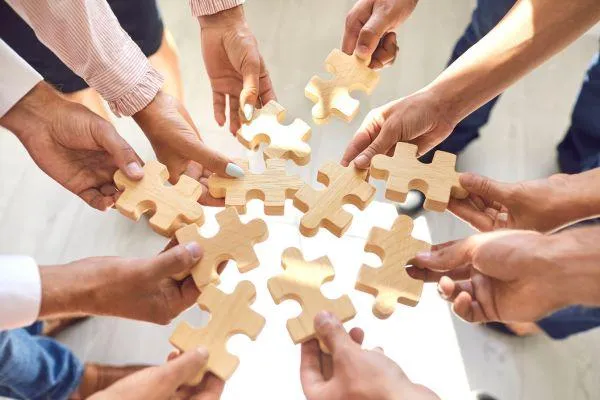
SUSTAINABILITY: From Burden to Solution

Is Sustainability Draining Your Team—Or Could It Transform Your Practice?
Do you consider sustainability requirements as yet another box to tick, another burden on your already overflowing plate? 😰
You're not alone.
In our work with innovative early childhood services, we've observed a clear pattern: the most successful teams have made a fundamental shift in how they approach sustainability. They've transformed sustainability from a burden into a powerful solution that addresses many of the challenges they were already facing. 🌱✨
The Challenge We All Face
As early childhood educators committed to excellence, we're constantly juggling competing priorities:
Maintaining high-quality educational programs 📚
Supporting our own and colleagues' wellbeing 💚
Engaging meaningfully with families 👨👩👧👦
Meeting regulatory requirements 📋
Managing resources efficiently 💰
When sustainability appears as yet another requirement, it's natural to feel overwhelmed. Many services respond by creating isolated initiatives: a recycling program here, a garden project there, perhaps a special "environment week" on the calendar.
But what if there's a more integrated approach? What if sustainability could solve your existing challenges rather than being a separate problem? 🤔
The Mindset Shift That Changes Everything 💡
The transformation begins with a fundamental mindset shift—from seeing sustainability as an add-on to recognising it as an integral part of your service's identity and daily practice.
When this shift happens, something remarkable occurs:
Teams unite around a common purpose ✨
Your own sense of purpose and wellbeing strengthens 💪
Family engagement deepens through meaningful sustainability initiatives 🤝
Children's learning experiences become more authentic and connected 🌿
Resource efficiency improves, often resulting in cost savings 💰
Your service develops a distinctive identity that attracts aligned families and educators 🌟
Beyond Recycling: A Holistic Approach 🌍
The most common misconception is that sustainability is primarily about environmental practices, such as recycling, gardening, and reducing waste.
While these are important, true sustainability in early childhood education integrates five key domains:
🌳 Environmental stewardship
⚖️ Social justice and equity
💡 Economic literacy and resource awareness
🎨 Cultural perspectives and knowledge
👥 Leadership and governance practices
Expanding our understanding of sustainability to include all these domains opens up countless opportunities to connect sustainability to our existing priorities and practices.
Where Does Your Service Stand? 🗺️
Through our work with services across Australia, just like yours, we've identified four distinct practice profiles on the sustainability journey:
🌱 Foundation Builder – You've established great activities and routines. The next step is helping educators recognise the sustainability thinking already happening in children's everyday play and conversations.
🌿 Emerging Practitioner – Your educators are beginning to notice and respond to children's sustainability thinking moment to moment. You're moving beyond activities into genuine sustainability education.
🌳 Intentional Integrator – Your team deliberately includes multiple sustainability dimensions and consistently recognises children's thinking. Your practice is sophisticated and respected.
🌲 Holistic Sustainability – Sustainability is a natural lens for your team. Your practice exemplifies what EYLF 2.0 envisioned, and you're recognised as a sector leader.
Starting Where You Are 🎯
The good news is that you don't need to start from scratch. Your service already has sustainability strengths—practices, knowledge, skills, and interests you can build upon.
The key is recognising these existing strengths and building strategically, rather than attempting to implement an entirely new program.
Consider:
What sustainability practices already exist in your service (even if not labelled as such)? 🔍
What knowledge, skills, and interests related to sustainability exist in your team? 💭
What community connections do you have that could support sustainability initiatives? 🤝
From Individual Champion to Collective Ownership 👥
Many services rely on a single passionate educator or a small group of environmental champions to drive sustainability initiatives. While this approach can start things, true transformation happens when sustainability is collectively owned.
By creating opportunities for different team members to lead in areas that connect to their interests and strengths, sustainability becomes embedded in your service culture rather than dependent on specific individuals. 🌟
From Special Activity to Everyday Practice 📅➡️🌈
The most successful approach to sustainability doesn't relegate it to special projects or themed weeks. Instead, it integrates sustainability into daily decisions, routines, and practices.
This doesn't mean doing more; it means approaching what you already do with a sustainability lens. Whether it's meal times, documentation practices, or learning environments, there are opportunities to embed sustainability principles within existing routines. ✨
Ready to See Sustainability as a Solution?
Download our free guide: Sustainability as a Solution: A Guiding Principle for ECEC
Discover how sustainability can address your service's real challenges:
Building stronger teams through shared purpose
Making budgets stretch further
Simplifying compliance and documentation
Deepening family and community connections
This practical guide will help you shift your perspective and see how sustainability can strengthen your service while supporting children, families, and educators to thrive.
👉 Download Your Free Guide: https://projectsustainabilitycollective.com.au/sustainability-as-a-solution
#ECECsustainability #SustainabilityLeadership #EarlyChildhoodEducation #SustainabilityInPractice #EYLF #NQS #SustainableECEC #RealWorldLearning #MindsetShift #BelongingBeingBecoming
